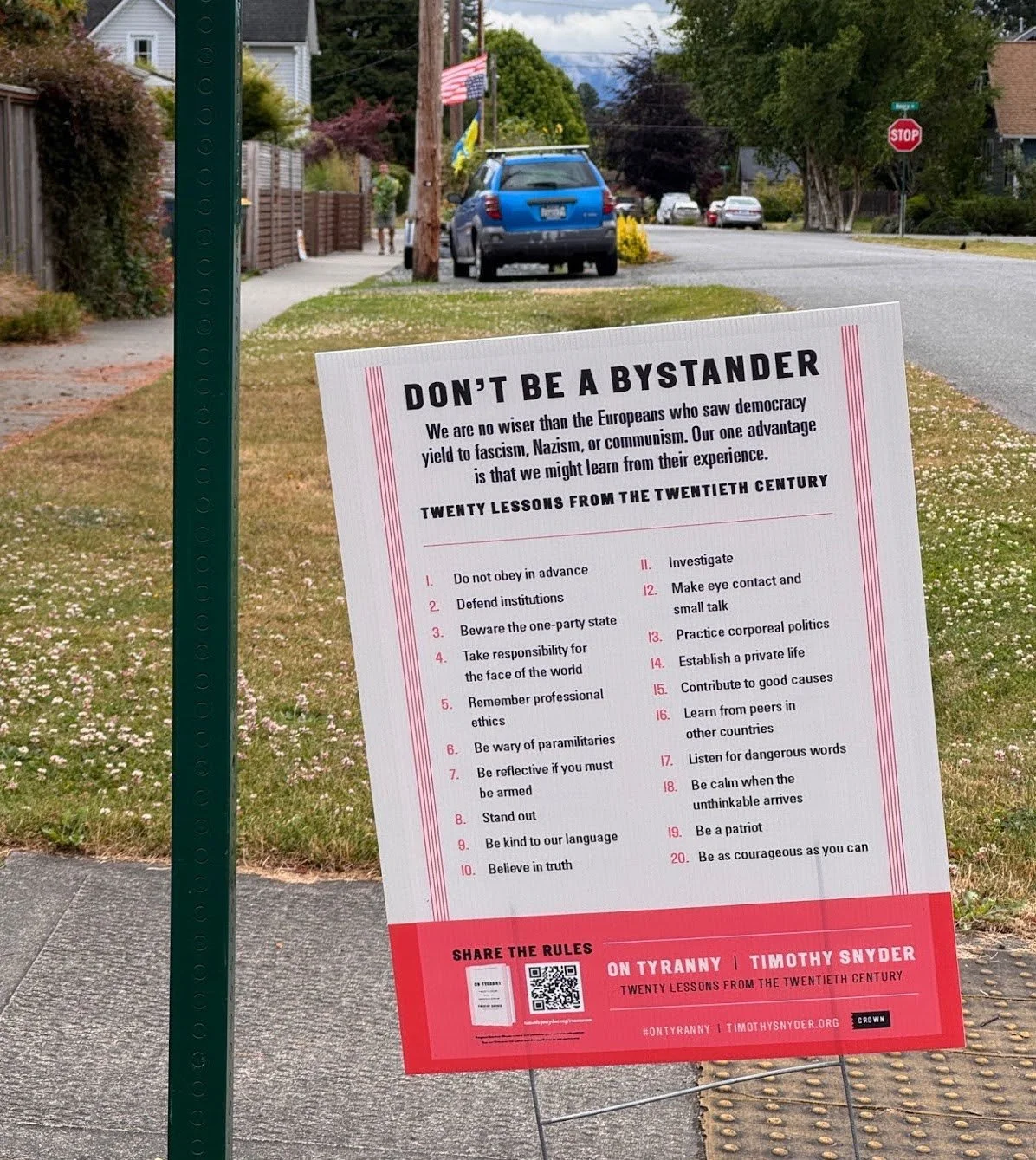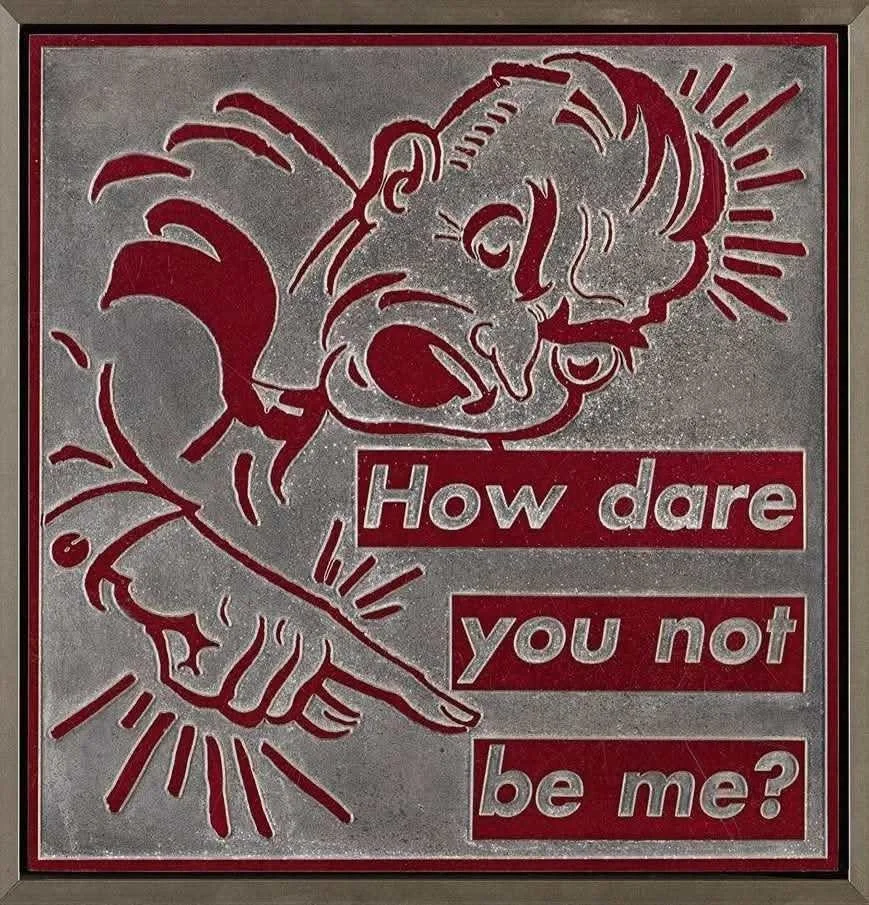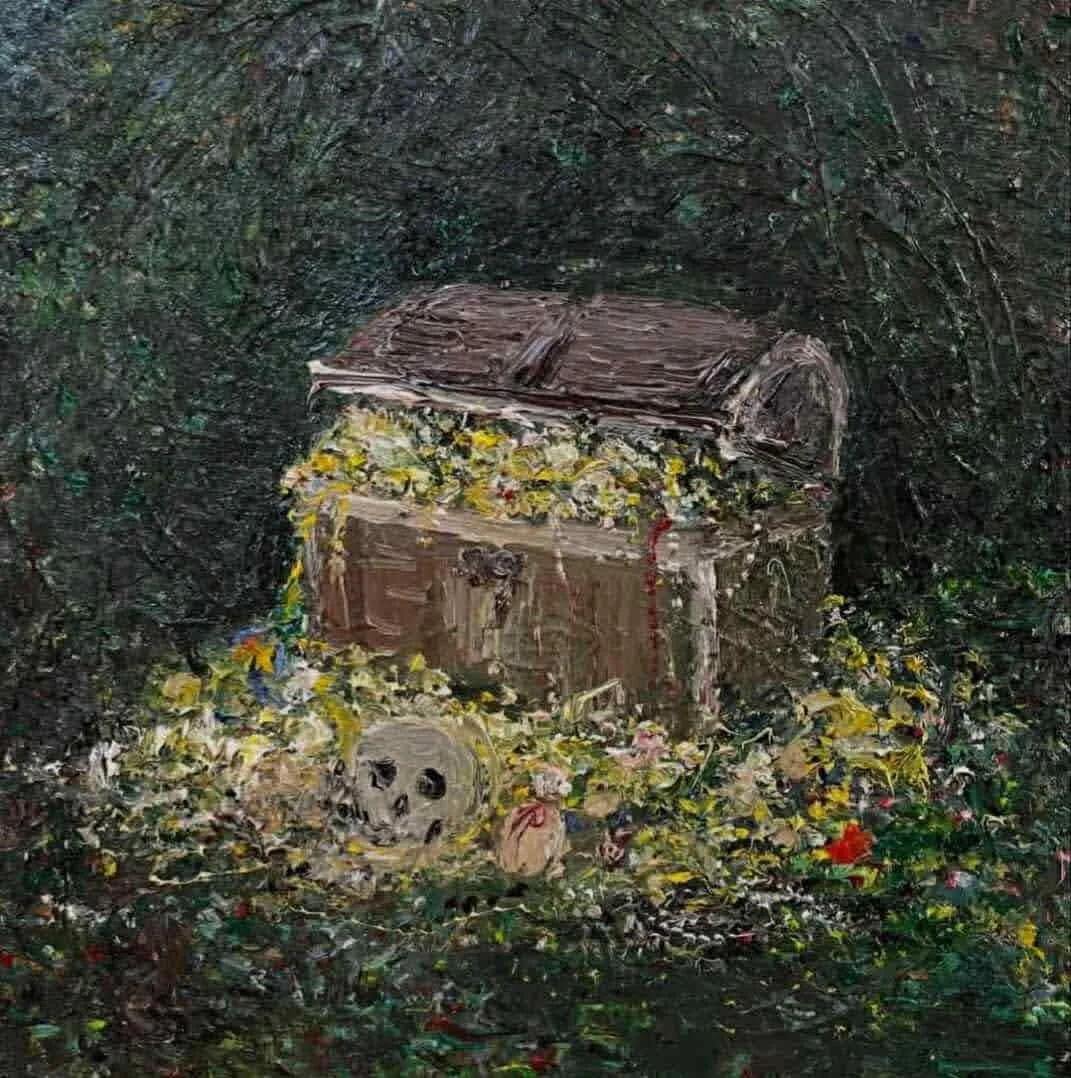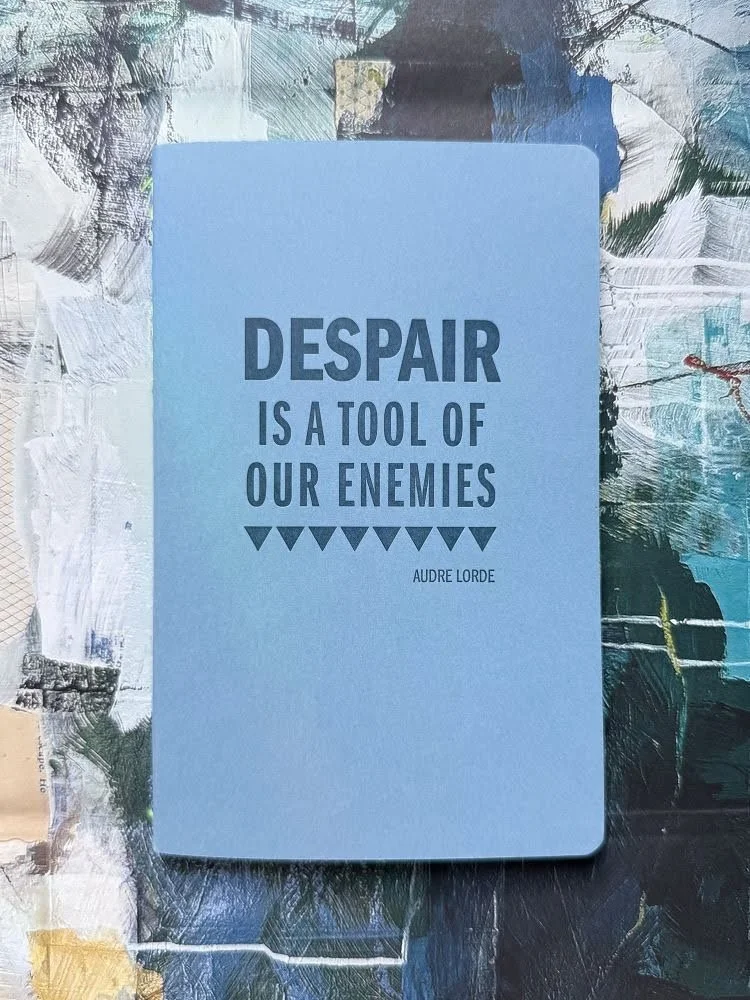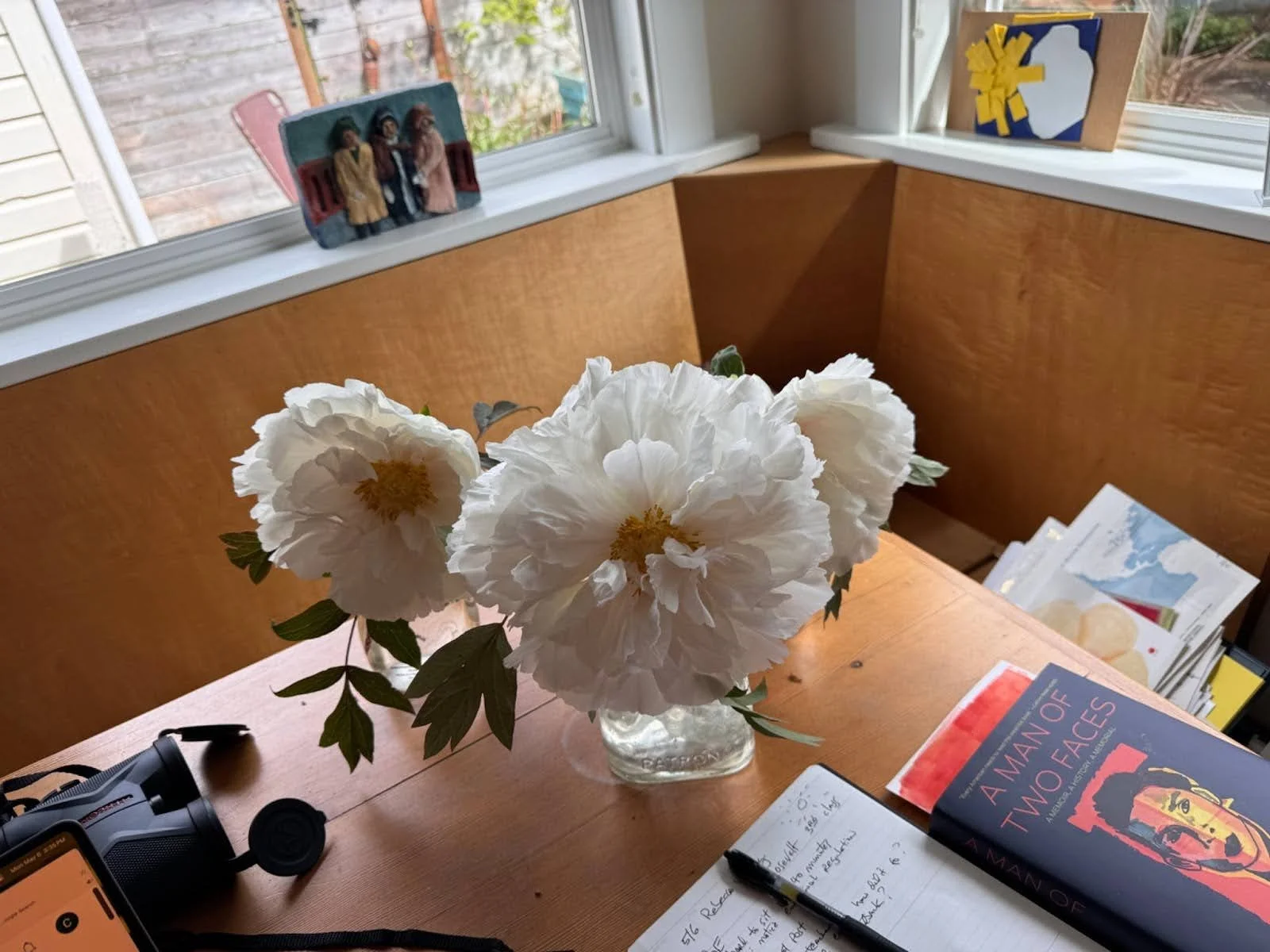NOTICINGS: Parallel polis
At home and the SCOTUS power of six over the majority of over half of 340 million citizens, including three dissents on the court.
Lessons from the 20th Century to guide us until the next election, and a photoengraving by Barbara Kruger, Untitled, 1996.In one way, they’re making it harder.
Whatever you call today’s SCOTUS rulings—misery for most, like 99%, and total power for some—the red line drawn is inescapably visible. Every mortal sense will be felt. Not just in the head, but in our bodies, too.
Irini Karayannopoulou, Fortune, Folly, Desire, Death 2025In one way, they’re making it easier.
No more struggles against the vague, the lies, the maybes, the hard-to-see. It’s all there in flashing neon signs, billboards bigger than football fields, in TikToks gone incessant, and Truth Social. It’s the alarm clock’s shrill that cannot be turned off, no matter how many times the button is slammed, burrowing under the covers won’t cover.
Fortunately, humans are capable of unending workarounds. You accidentally hit delete, but whew!, just undo.
Blackbird LetterpressThe title is from comments by Audre Lorde in the 1979 conference, "The Personal and the Political" Panel Second Sex Conference. “The Master's Tools Will Never Dismantle the Master's House."
Calling your congressperson is the most effective way to influence policy.
Make 5 Calls. Use the resources provided by Indivisible.
Do you wonder what the similarities and differences of our lives are, as together, all of us struggle every day to protect and love what we love?
What two workarounds represent your private life, and which of SCOTUS’s decisions are you looking at today? Post two photos in the chat here.
We each of us, in our way, tend to our gardens. Actually or metaphorically.
Three centuries ago, Voltaire was exiled for his political activities from his home country to England in 1726. He was one of the first campaigners for human rights in Europe, and, in one instance of many, made his garden foreground. “Cultivate your garden!”
“By garden,” explains Adam Gopnick in the New Yorker, “Voltaire meant a garden, not a field—not the land and task to which we are chained by nature but the better place we build by love.” Voltaire made a huge garden. It was bordered by a stone wall. As Gopnik observes, “When people were dragged from their gardens to be tortured and killed in the name of faith, he began to take it, as they say, personally. The advice to cultivate your garden “is that our responsibility is local, and concentrated on immediate action.”
Here are three companions from my garden.
To the right on the windowsill, a piece made when my grandson was five: “A Bridge of Sunlight!”I’m awfully pleased that this photo, taken last year, shows what I was then reading. Viet Thanh Nguyen’s A Man of Two Faces. With awe, admiration, and respect, I am watching Nyguen’s political actions now. Born in South Vietnam during that war waged by America, he arrived in the United States as a refugee in 1975. Nguyen won the 2016 Pulitzer Prize for Fiction for his first novel, The Sympathizer. Nguyen’s vehemence and clarity bolster me.
——————
Notes
https://thehill.com/regulation/court-battles/5373118-supreme-court-liberal-dissent-birthright/
https://www.newyorker.com/magazine/2005/03/07/voltaires-garden https://vietnguyen.info/


